I wondered how this devastating chapter in American circus history would be more fully analyzed and covered in the days to come. And as time has passed, the reactions have become either more critical of Kenneth Feld or of traditional big top entertainment as out of touch with modern culture.
And then came the so-called “experts,” some with academic credentials, the latter, a group known for befuddling the gullible with overwrought views.
Let’s start with USA Today, and with a voice from the corporate sector, calling the death of the Greatest Show on Earth “an American tragedy.”
The writer, Brad Deutser, is a former Ringling staffer who advises companies on “how to achieve clarity, especially in times of transition, growth or crisis.” In expressing sympathy for the Ringling shut down, Mr. Deutser advanced a number of novel claims, one being that “Ringling Bros. was the entry point for so many to begin their careers in show business.”
To begin? Really? Surely, he did not mean their performing careers, unless he was thinking of the impressive number of young clowns tutored under Feld watch. In fact, Ringling was the end point, the mark of having arrived for the most accomplished artists. They would put up with having to appear simultaneously alongside other acts – just to be seen on the Big Show. Watch the film Trapeze.
Asks Mr. Deutser, "What will happen to the children who no longer have the Greatest Show on Earth." Oh, paleeeze! There are plenty of circuses out there providing the same experience.
And now comes the learned class, via a story in the Washington Times about the upcoming Smithsonian FolkLife Festival. Whenever I see a quote, an article or book by an academic, I tend to cringe a little, and to brace myself for runaway analysis. Well, in college, you are taught to dig and think deep, which can lead to tortured reasoning bordering on the hallucinatory. So, on the sunnier side of the lot, we find professor Janet Davis, at the University of Texas/Austin telling us that at this critical moment, “We're in a kind of circus renaissance in America.”
Give me a break. Upon what does she base her feel-good scenario? Implicitly on the growing number of smaller, one-ring shows that have been springing up, most of them in and around campuses where circus arts are now being taught.
I am pleased to see these youthful manifestations of the ageless delight, but to confuse them for world class achievement — for, pardon my crude choice of words, commercial circus — is an epic reach into never never land. Sorry for my impudence, prof, but no, I won’t be bothering to take the mid-term exam on this one.
Let’s get real: The most telling reality by which we judge the appeal of any ticketed amusement is the crowd size it can attract. And not just to a periodic season of shows lasting but a month or two a year. Even in recent times, Ringling drew three or four thousand people per show. How many other circuses anywhere in the world can make such a claim?
Playing to People Who Want Circus Acts, But Not the Circus
Today’s defenders of a bright new tomorrow argue that the public now wants to feel a more intimate connection to the artist. As in audience interaction. Pyrotechnics (can you think Feld fireworks?) to them mean that your acts do not receive proper attention and respect from the audience. Try telling this to the legions of Ringling circusgoers who have thrilled to many of the best acts on the globe.
We have just lived through the traumatic fall of three major American circuses -- Ringling, Cole Bros., and Big Apple, the latter returning under new ownership. To believe that student-oriented programs, all well meaning, can be a renaissance to the rescue is a pipe dream.
I hope the media goes a lot deeper than it has so far. My eyes are wide open to what next some expert might have to say about the meaning of the demise of Ringling Bros. and Barnum & Bailey.
photos, from the top: Ringling Bros. and Barnum & Bailey, Out of This World
Wenatche Youth Circus
Big Apple Circus, 2014



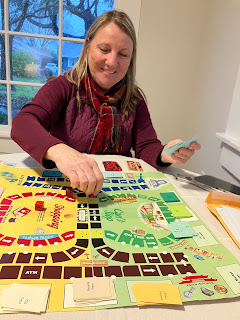

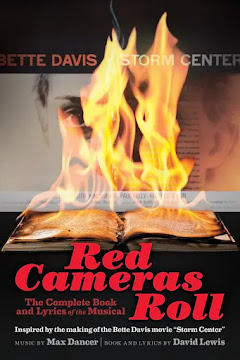

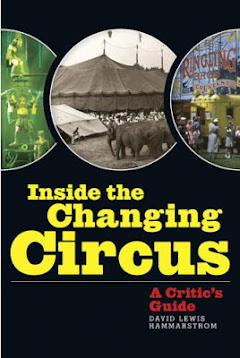
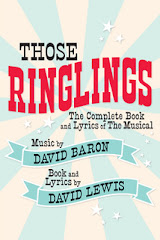
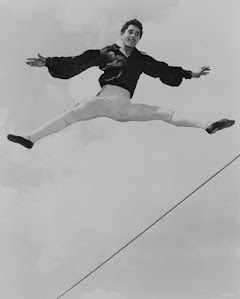
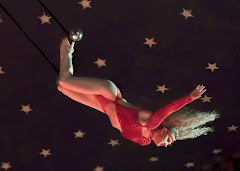






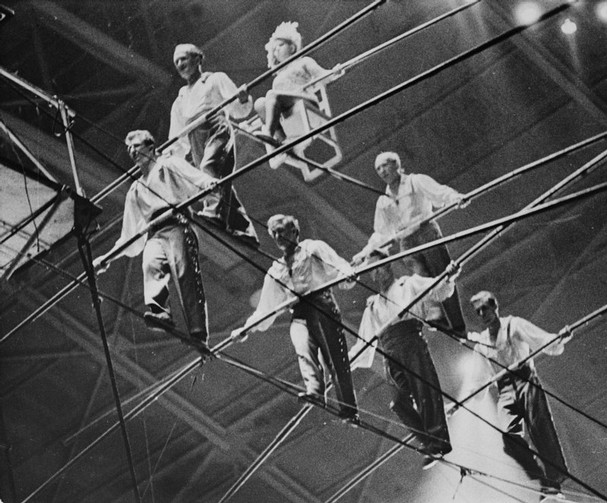
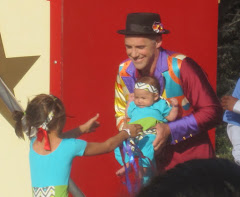
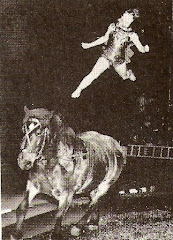




No comments:
Post a Comment